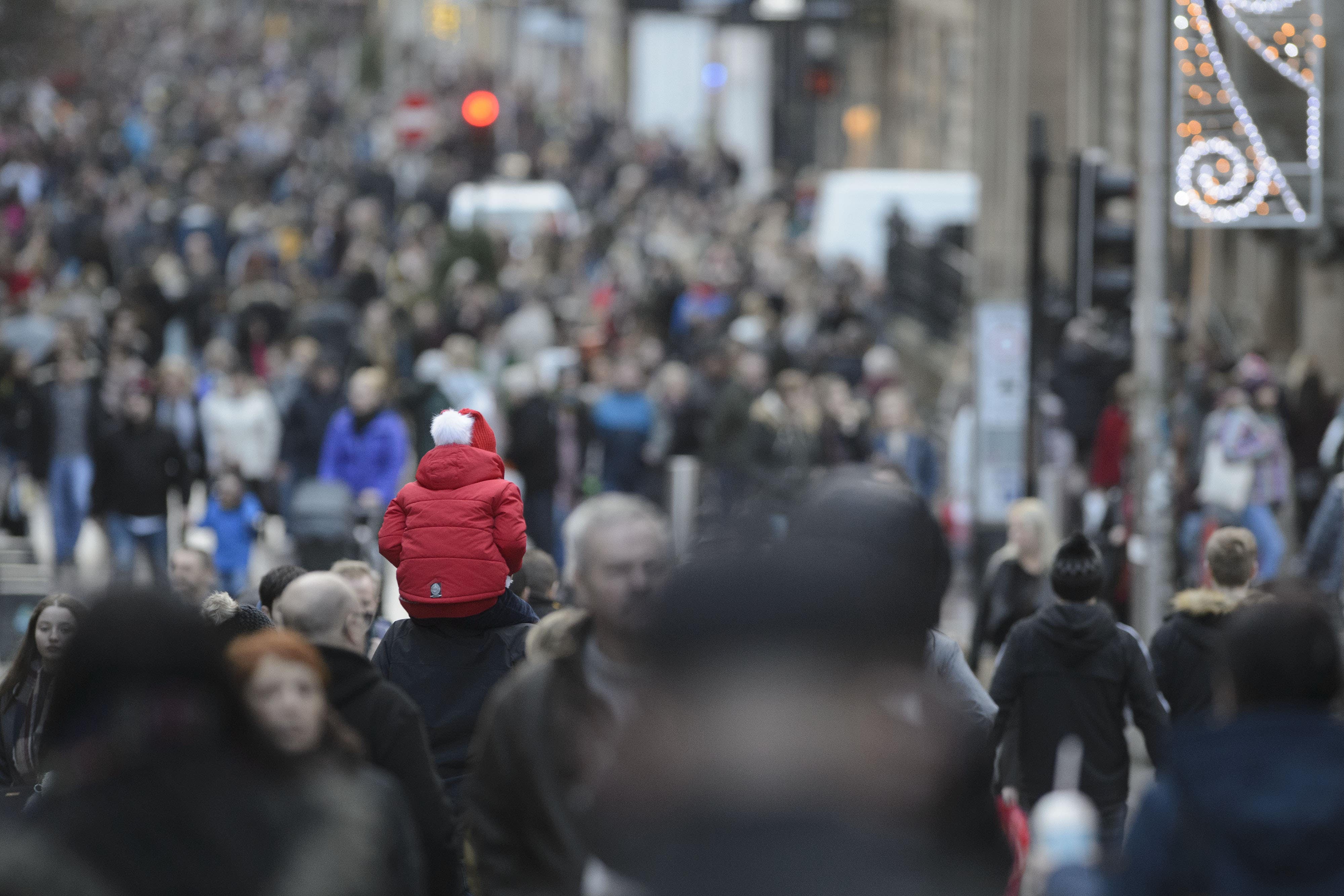Winter recession fears as retail sales hit lowest level since lockdown due to cost of living and wet weather
Economists said the figures painted ‘a distinctly glum autumnal picture’

Your support helps us to tell the story
From reproductive rights to climate change to Big Tech, The Independent is on the ground when the story is developing. Whether it's investigating the financials of Elon Musk's pro-Trump PAC or producing our latest documentary, 'The A Word', which shines a light on the American women fighting for reproductive rights, we know how important it is to parse out the facts from the messaging.
At such a critical moment in US history, we need reporters on the ground. Your donation allows us to keep sending journalists to speak to both sides of the story.
The Independent is trusted by Americans across the entire political spectrum. And unlike many other quality news outlets, we choose not to lock Americans out of our reporting and analysis with paywalls. We believe quality journalism should be available to everyone, paid for by those who can afford it.
Your support makes all the difference.UK retailers saw their sales levels plunge unexpectedly in October due to the ongoing cost of living crisis and wet weather – stoking fears of a winter recession.
Retail sales dropped by 0.3 per cent in October, the Office for National Statistics (ONS) said, falling to their lowest level since February 2021 when widespread Covid lockdown restrictions were still in place across the country.
Food shops said their sales had fallen 0.3 per cent during the month, a worse result than September, but non-food stores saw a decline of 0.2 per cent in October, a small recovery after sales dropped 2.1 per cent the month before.
Retailers said the cost of living crisis, bad weather, and reduced footfall led to the disappointing figures.
The fall in sales is particularly surprising as economists had expected a rise of 0.4 per cent across the month, leading to fears Britain’s economy is heading into troubled waters.
Sandra Horsfield, an economist at Investec, told The Guardian that the figures painted “a distinctly glum autumnal picture”.
The UK’s last GDP report, which showed the economy had stagnated, could potentially now be revised lower, she added.
Mr Horsfield said: “Initial estimates had suggested the economy just about avoided a contraction (at least after rounding) in Q3, but with releases such as today’s, it is possible that this changes in subsequent releases of GDP statistics.
“In any case, we remain of the view that a winter recession looks likely, as higher interest rates gradually feed through and take their toll on household and business finances.
“That said, we also continue to expect the downturn to be mild as a moderation in inflation should help support real purchasing power.”
Earlier this month the Bank of England released forecasts showing the country is predicted to see zero growth until 2025 and teeters on the brink of recession.
The ONS added that this year people were paying 16.9 per cent more to buy 3.1 per cent less than they did in February 2020, showing the impact of rising costs.
“Retail sales fell again in October to their lowest level since February 2021 when widespread lockdown restrictions were in place,” said Heather Bovill, deputy director for surveys and economic indicators at the ONS.
“After rebounding in September, fuel sales dipped with increasing prices discouraging customers, while food sales also dropped as consumers prioritised essential goods.
“It was another poor month for household goods and clothes stores with these retailers reporting that cost of living pressures, reduced footfall and poor weather hit them hard.
“However, it was a better month for online retailers, the only main sector to report growth in October.”
A survey from the ONS earlier this month showed that the rising cost of living has caused around two-thirds of adults in Britain to spend less on non-essentials.
Aled Patchett, head of retail and consumer goods at Lloyds Bank, said: “Another dip in sales suggests rising household costs remain at the forefront of consumers’ minds, despite headline inflation easing in recent months.
“The rising cost of living remains a drag on consumers’ discretionary incomes. Households continue to prioritise essential spending, particularly as falling winter temperatures push energy use up and high levels of inflation prevent material downturns in the prices of goods.
“Retailers will now be looking to strike the balance of getting staffing levels right while also being mindful that an early sales offering might not get the tills ringing as loudly as they’d like, as consumers navigate financial challenges elsewhere.”
Additional reporting by agencies